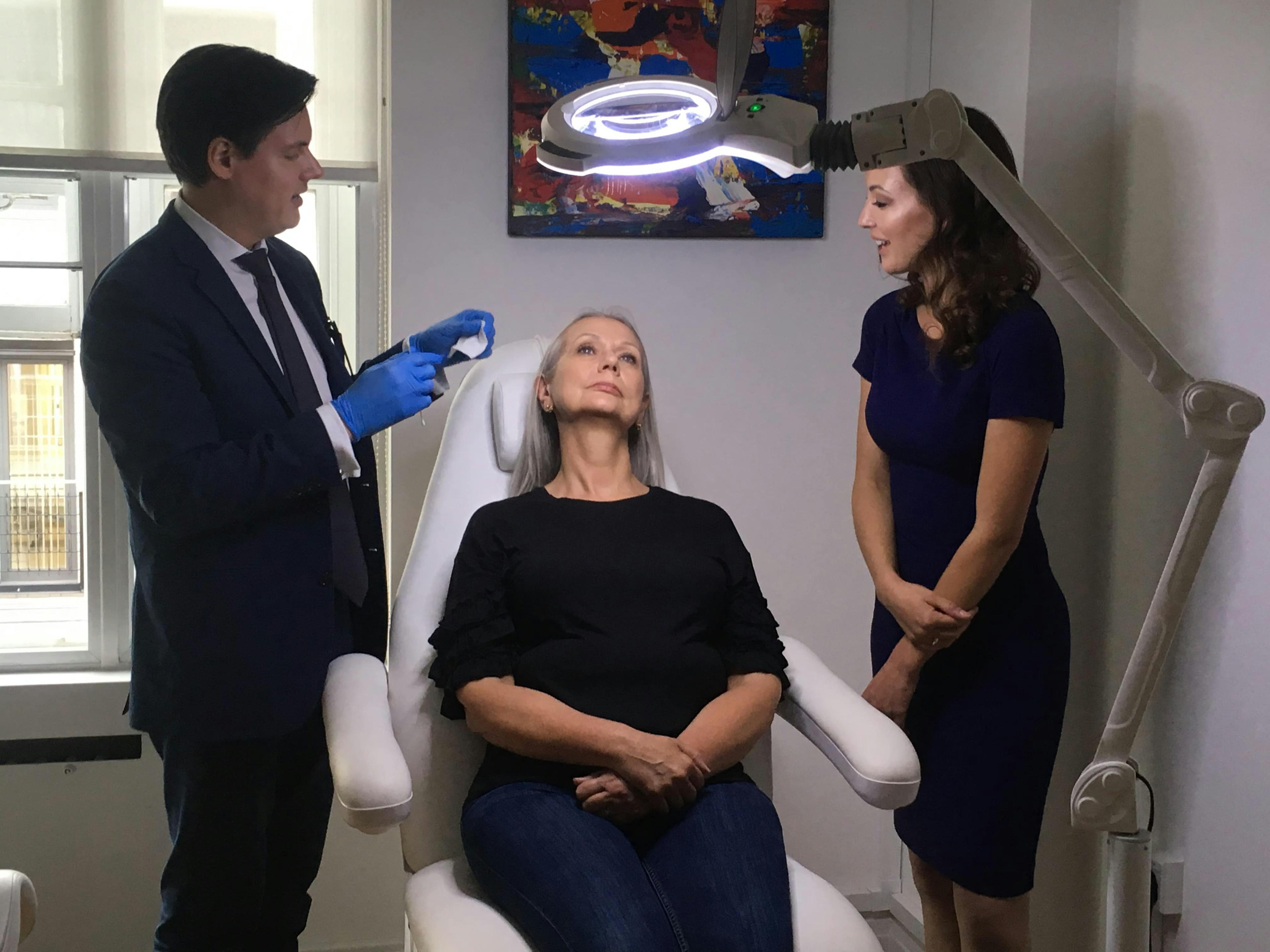Should You Become An Aesthetic Nurse?

Many nurses perform aesthetic procedures part-time as a substantial source of supplementary income. Beyond the obvious financial benefits, there are some factors that nurses should consider before starting a career in aesthetic medicine.
We’ve compiled 6 of the biggest promises and perils to consider before and after training, including how to avoid risks – or even use them to your advantage.

Aesthetic Nursing Key Facts
An estimated 4,000 nurses perform non-invasive cosmetic treatments in the UK alone (note: there is not yet an official register).
90% of cosmetic procedures are non-invasive.
Nurses perform a huge 70% of non-invasive cosmetic treatments.
1. Revalidation
The NMC’s revalidation requirements of October 2015 require Nurses and Midwives to dedicate 35 hours to Continuing Professional Development (CPD).
A CPD-accredited course in aesthetic medicine provides a lucrative source of hours, but you need to ensure the course is CPD-accredited.
2. Diversity of qualifications
There are a wide variety of aesthetics training courses. Many are aimed at different levels, and the lack of regulation means quality varies wildly. Choose carefully, taking into account the following facts:
(a) medical information changes. Since you will be practising independently, you will be responsible for staying up-to-date. Check whether your training academy offers continuing support and medical information post-qualification.

(b) The aesthetics industry is currently unregulated, but may well not stay this way in light of the HEE’s latest qualification requirements, and the increasing popularity of this £3.5 billion industry.
We’ve written a summary of HEE’s 2016 Guidelines in Cosmetic Procedures here to give you a brief overview of the new requirements.
Beware, a one-day course should only be a starting point for an aesthetic nurse. It is important to pass a more rigorous assessment that can later act as evidence of your competency.
You don’t want to have to pay to retrain. Ground your training with an HEE-compliant qualification to gain learning opportunities and not expensive mistakes. Indeed, there are many ways to progress in Aesthetic Medicine – from cutting-edge dermatological insights to advanced practical techniques.
3. Face-to-face vs. remote prescribing
Nurses face being struck off if they bend the NMC prescribing rules. We cannot stress this enough: avoid remote prescribing.
Have (or become!) a qualified prescriber who can give face-to-face consultations before prescribing botulinum toxins to your patients.

You may consider taking the V300 Advanced Certificate in Independent Prescribing (offered by many UK universities). This course is recommended by the British Association of Cosmetic Nursing (BACN) and brings with it many benefits, such as higher earning potential both inside and outside the NHS.
4. Location, location, location
Will you be performing treatments in your own home? The HEE says aesthetic nurses should practice in a clinical setting. A clinic allows you to deal effectively with complications and emergencies. Carefully consider where your practice will take place.
Don’t worry if you don’t have somewhere in mind yet – many clinics rent out rooms to aesthetic nurses. Practising in a clinic not only complies with health and safety recommendations and increases patient safety, but also exhibits your clinical professionalism.
5. Independence… or isolation?
Aesthetic nursing brings with it independence, financial and administrative. However, the absence of colleagues and supervision brings its own challenges:
‘Being a Medical Aesthetic practitioner involves working autonomously, making clinical decisions based on comprehensive consultations and carrying out physical assessments of patients. However, owing to the lack of regulations and standards for education in Medical Aesthetics, many nurses may feel isolated and inadequately prepared when entering the field.’ – from Fundamental aspects of advanced nursing practice in the field of medical aesthetics
Voluntary membership organisations such as BACN can be a valuable source of professional support. Reputable training academies may also offer professional guidance after you graduate; enquire before booking.
6. Ethical challenges
There are a range of psychological drivers that motivate cosmetic procedure requests – some less healthy than others. Mental health problems like Body Dysmorphic Disorder (BDD) can be difficult to spot and manage appropriately.
Psychological assessment tools and referral options should be covered by your training. Choose a course that focuses on psychological welfare. It should enable you to identify suitable emotional support and referral options as part of the consent process.
Further resources:
- British Association of Cosmetic Nurses – BACN – Information for Nurses interested in entering Aesthetics
- Nursing and Midwifery Council – What is Revalidation?
- HEE 2016 Guidelines for Cosmetic Procedures: A Brief Summary
- CPD-accredited injectable training
- Careers in Aesthetic Medicine
- Nurse prescribing courses
Last updated: 4 December 2020
Download our full prospectus
Browse all our injectables, dermal fillers and cosmetic dermatology courses in one document
By submitting this form, you agree to receive marketing about our products, events, promotions and exclusive content. Consent is not a condition of purchase, and no purchase is necessary. Message frequency varies. View our Privacy Policy and Terms & Conditions
Attend our FREE open evening
If you're not sure which course is right for you, let us help
Join us online or in-person at our free open evening to learn more
Our Partners














STAY INFORMED
Sign up to receive industry news, careers advice, special offers and information on Harley Academy courses and services

